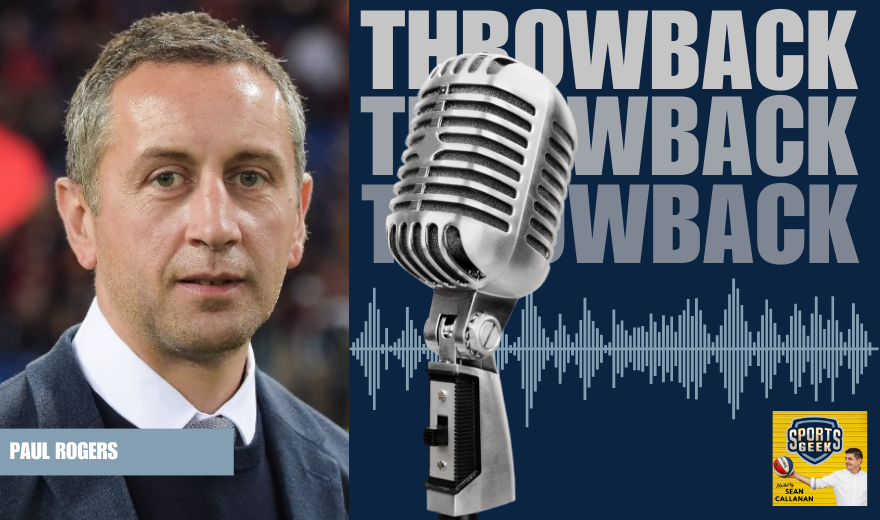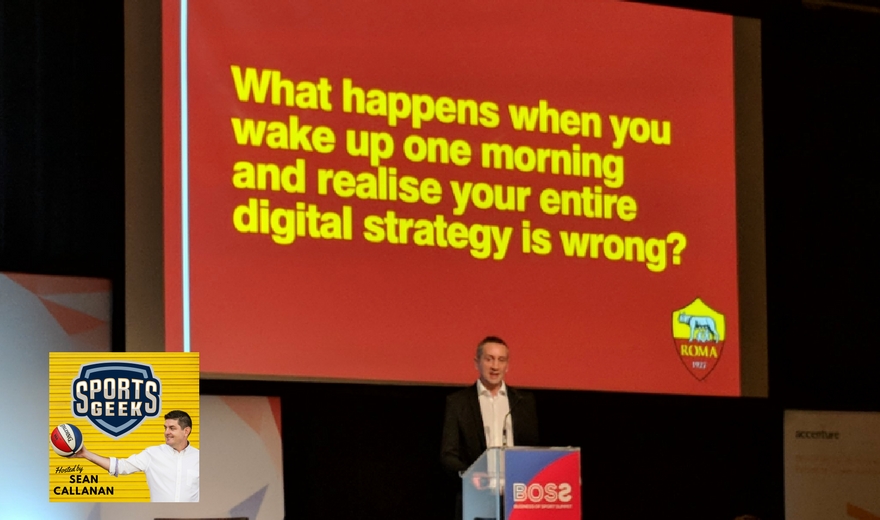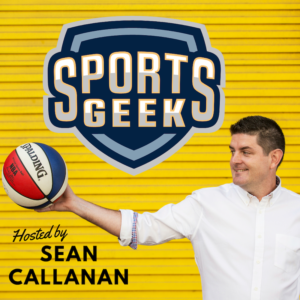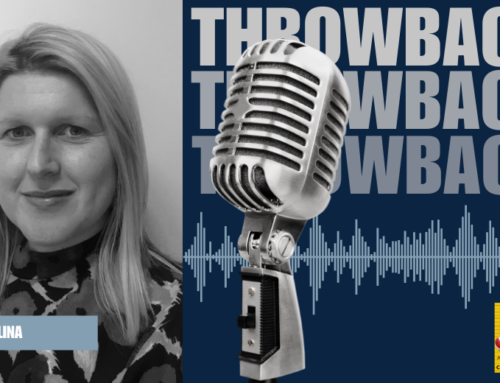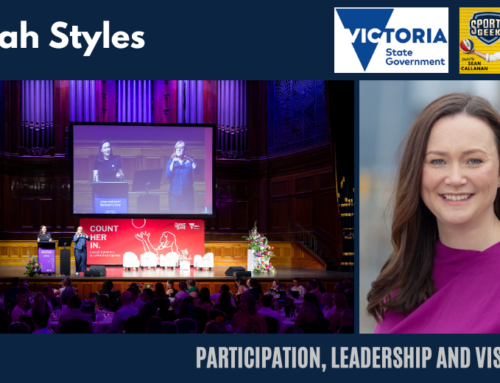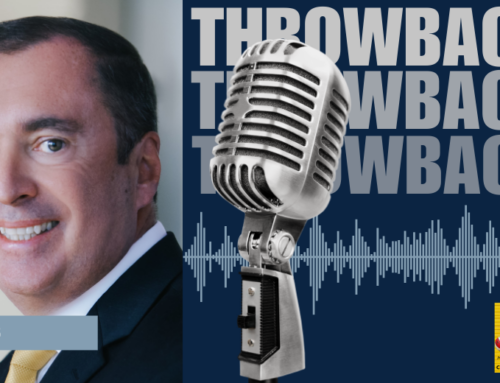In this Sports Geek Throwback episode, Sean Callanan interviews Paul Rogers from episode 189, who was at AS Roma and now Investment Analyst at Raptor Group.
Can't see podcast player? Click here to listen
Key Takeaways
In this Sports Geek Throwback, Paul and Sean discussed the strategies and challenges involved in localising content for international fanbase.
- Importance of understanding and respecting the cultural nuances of different regions.
- The use of social media platforms like Instagram, Facebook, and Twitter in crafting a global communication strategy.
- The role of humor and engaging content in attracting and retaining fans.
- The balance between maintaining a traditional appeal for hardcore fans and innovating for the new audience.
- The significance of feedback and constant evolution in the content strategy.
This transcript has been lightly edited by AI
Sean: Going back to your point about the internet, that early time, again, it was like the community, like you were, you'd post something and you'd be responding because you, the audience was still relatively small, but growing and you had that community feel, how did you go from like, you roll it out and you're starting to put your content and you're testing what's working to then this audience and this, the numbers just skyrocket. You know, there were a few levers that were pulled around, what was happening with Twitter and that caused growth.
And then, you know, Facebook with pages and stuff like that, that really caused a big spike. How did you go through that exceptional growth period that a lot of the clubs went through?
Paul: I think it was like, well, obviously that was just like, everyone was just getting on it and at the same time, football clubs were getting on it. The general public was getting on it. So like, and then it made sense. And then people started following different, you'd follow more than one club. It was a different audience. You know, I always knew it was, it was a little bit sort of problematic that you knew that you're building this on someone else's platform.
And I always knew that. And we had this sort of website competing with it. So you own the website, it's what, you know, those metrics are probably better for you. People are selling onto that platform. And, and, you know, and we were traditional journalists, you know, metamorphosing into social media people.
But, you know, I always knew, let's not go all in on social media and Arsenal. I remember Arsenal went all in on, and Arsenal and Liverpool used to share stats on website stats. We were quite close in terms of that. And we always had like higher website traffic than them. But then they all went in on social media.
A lot heavier than Liverpool sort of did. And then their website traffic went right down, but their social media traffic went up, and their social media followers went up. And we would look at it and sort of like, you know, is it the right thing to do? Is it the wrong thing? And I don't think there was any right or wrong.
I think time's proved, you know, not that you would ever change what you did. But the risks that we knew there was a risk, we knew that Facebook at any point could just change the, you know, I always thought it wouldn't be so much they would cut reach or organic or the algorithms, I actually thought at some point they could charge, they could charge by followers, you know, they could say to the big brands, hang on, why are we doing this?
It's like the yellow pages or something, you know, and, um, And I always thought that could happen. So it was sort of like, it was sort of arm's length a bit. We were like first on, but it wasn't like, let's give them everything. You know, we've still got to keep a website afloat and stuff. I think the big game changer for us, Liverpool, was I was looking at our metrics around our website and our website traffic would have been, if I looked at the top 10 countries, it was, I think, 7 or 8 of the top 10 countries on Liverpool's website, in terms of traffic were English speaking. So it would have been, it actually was, um, the UK, Ireland, USA, Australia, um, Malaysia, Singapore.
You know, and maybe Denmark or somewhere would have been in there or Norway certainly would have been in there, but generally English speaking countries. When I started to look at Facebook in great detail, our number one country was the UK and then it was Indonesia, then it was Thailand, then it was Malaysia, India would have been somewhere in there, but basically Mexico, Colombia.
Basically, I worked out something like seven or eight of the top 10 countries on Facebook for Liverpool were foreign speaking, foreign language. But on the website, it was all English. So I thought, well, instead of just launching new websites in all these languages, everyone's on social media. Why don't we launch international local language social media and do it localized rather than translation?
Sean: And that was the key thing. And so that's when you did that, that split of setting up regional based social media. Produce content for that market, in that language, in that tone. And so it was a different, you know, a different approach, but that, that's what worked and connected with those markets. Like we set up, we were quick to set up social media accounts for the club when we decided to go down the international route.
Yeah, we were basically very quick again with that. We knew there was an audience because the audience was there on Facebook following the club, they just weren't consuming the content because they couldn't understand it. So we had to localize content. Generally it was about language. Um, the language was a barrier.
In some cases, like when we did with India, it was about, just more about localisation. It was more about personalising and giving a different sort of feel to those fans. And then that, did that feed into, you know, the international tours and that kind of stuff? Because, you know, if you're saying, hey, we're gonna Tour in this part of the world, you go put that on the standard Liverpool channels, they become more and more cluttered.
And so it gave you a little bit of that segmentation. You know, people in, people in London don't want to really know a lot about the Australian tour, but everyone in Australia wants to know everything about it. And if it gives, did it give you a bit of, I guess, a bit of flexibility?
Paul: Yeah, I think, I think the fans want to know everything that's happening about the club, but what it meant was that we could actually just deliver content in potentially a different way.
If it's a language issue. Um, then it, then, then we're obviously, we're breaking down the barrier of language, but, but one thing we were finding with Australia was, you know, even though it's English language, we were posting at the wrong time. So, you know, and it was a very different, um, it was a very different experience for those fans to be able to, to get content out their time.
And you can, yeah, you can just schedule the content. And again, this is, you know. We're not just talking Facebook specifically because, some have algorithms and it would still pop up, but if you're posting at 4am in the morning and your fans aren't seeing it, like it's a big thing


